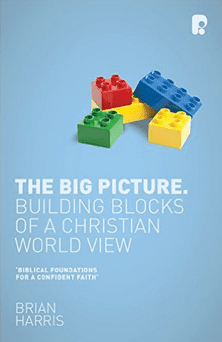Roger Olson, of Truett Theological Seminary, gave a talk at Missio Alliance on “relational theology,” and I clip a a few paragraphs to incite you to read his whole presentation:
The second view of God’s sovereignty, the one I plan to expound here, isrelational theism. Oord, one of the editors and authors of Relational Theology, defines it this way: “At its core, relational theology affirms two key ideas: 1. God affects creatures in various ways. Instead of being aloof and detached, God is active and involved in relationship with others. God relates to us, and that makes an essential difference. 2. Creatures affect God in various ways. While God’s nature is unchanging, creatures influence the loving and living Creator of the universe. We relate to God, and creation makes a difference to God.” (p. 2) Another author, Barry Callen, says of relational theism (or theology) that it focuses on “the interactivity or mutuality of the God-human relationship. God is understood to be truly personal, loving, and not manipulative. The interaction of the wills of Creator and creature are real.” (p. 7)
Relational theism or theology comes in many varieties, some of them quite incompatible at points. All share in common, however, belief that creatures can and do actually affect God. The relationship between creatures, especially human persons, and God is two-way. God is, as Dutch theologian Hendrikus Berkhof said, the “defenseless superior power” within a genuine covenant relationship with us whose immutability is not impervious to influence but “changeable faithfulness.” According to relational theism, the God-human relationship is reciprocal, mutual, interactive. God is not Aristotle’s “Thought thinking Itself” or Aquinas’ “Pure Actuality” without potentiality. Rather, God is Pinnock’s “Most Moved Mover”—the superior power who allows creatures to resist him and becomes vulnerable and open to harm as well as joy….
What I want to outline for you and recommend to you is a non-process, narrative-based, relational view of God’s sovereignty. It is not rooted in process theology which, while relational, detracts too much from God’s transcendence. Process theology is one form of relational theology, but not all relational theology is process. Process theology denies God’s omnipotence which is its main failing. From that flow other flaws such as its denial of any eschatological resolution to the struggles of history and eventual end to evil and innocent suffering. Process theology, in my opinion, sacrifices too much of the biblical portrait of God and, in the process, robs us of hope for the world. It is right in much of what it affirms but wrong in much of what it denies. It rightly affirms God’s vulnerability and the partial openness of the future; it wrongly denies God’s power to intervene in human affairs to rescue, heal and defeat evil….
Does this all mean that God needs us? Not at all. This God could have lived forever satisfied with the communal love shared between Father, Son and Holy Spirit, but he chose to become vulnerable in relation to the world he created out of the overflowing of that love. Is that just a metaphysical compliment unnecessarily paid to God or a truth necessary to the biblical story of God with us? I would argue it is the latter. A God who literally needs the world is a pathetic God hardly worthy of worship….
The key insight for a non-process relational view of God’s sovereignty is thatGod is sovereign over his sovereignty. The missio dei is God’s choice to involve himself intimately with the world so as to be affected by it. That choice is rooted in God’s love and desire for reciprocal love freely offered by his human creatures. None of this detracts in any way from God’s sovereignty because God is sovereign over his sovereignty. To say that God can’t be vulnerable, can’t limit himself, can’t restrain his power to make room for other powers, is, ironically, to deny God’s sovereignty.











